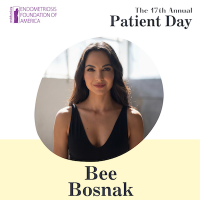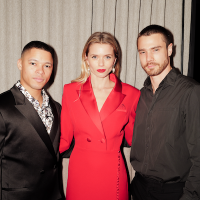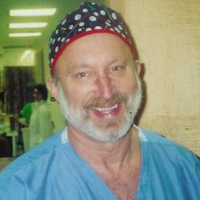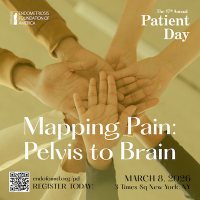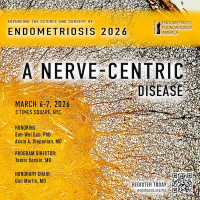
Mary Groninger has never run a marathon. She’d also never heard of EndoFound until a Google search last spring. Now she’s training for the world’s largest race as a member of Team EndoStrong.
“It’s been a whirlwind since I was picked for the team,” said Groninger, whose training has included running four days a week and doing Pilates twice a week. “I’ve always wanted to run a marathon and knew I’d be in New York this summer. Why not start with a bang with that big crowd and all that energy?”
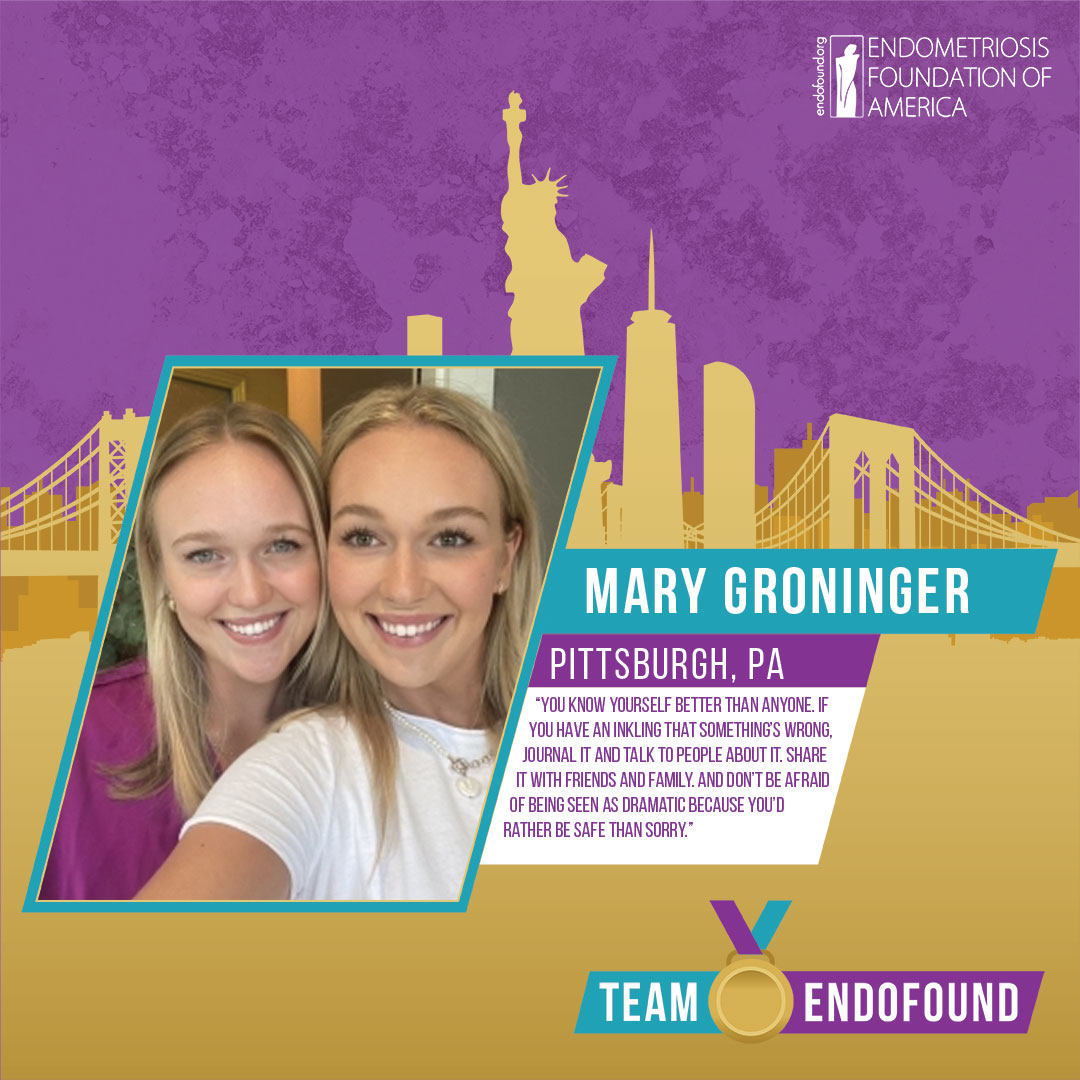
Click Here To Support Team EndoFound Runners
Groninger is from Pittsburgh. The University of Alabama rising senior is double majoring in marketing and fashion design and interning this summer at J.Crew. On Nov. 5, she will be one of 51 women and men from the US and Europe running for Team EndoStrong in the New York City Marathon. The team’s goal is to raise more than $200,000 for EndoFound in a race that will feature 50,000 runners and cover 26.2 miles through the city’s five boroughs.
Groninger’s endometriosis story began when she was in sixth grade and had her first period.
“I was in school, had a really horrible reaction, passed out in the nurse’s office, and had to go home. And I just thought my symptoms were normal,” she said. “Fast-forward through the rest of middle school and into high school. On the first day of my period each month, I’d have an hour and a half of what I’d call an episode. It was short but extreme. I’d lose all feeling in my body, have debilitating back pain, and get sick. I’d be on the bathroom floor alone, thinking I was dying.”
The symptoms would disappear after those 90 minutes, and Groninger would feel fine for the rest of the month.
“But I couldn’t control when it would happen, so there were many times when I’d have to leave work early or miss golf lessons or know that I couldn’t be at school in case it did happen. I had to schedule my life around it,” she said. “I remember being at sleepovers and telling my friends, ‘I need to go to the bathroom for an hour and a half. You don’t need to call anybody and don’t tell your parents. I’ll be okay. I just need to get through it.’
“My mom used to tell me a quote,” she continued. “It was, ‘This too shall pass.’ And I’d say it over and over while crying during these episodes.”
Groninger became vocal about her pain when friends and family began to notice what she was going through. But it wasn’t easy to speak up.
“I’m the youngest of three girls and have notoriously been known in my family to be a little bit of a drama queen, so I held it in for that reason for a really long time,” she said. “But my junior year of high school was when I’d had enough and saw a gynecologist.”
Her mother prompted that visit.
“My mom was the first one who said there’s something called endometriosis and maybe I should talk to a gynecologist about it,” Groninger said. “I’d heard of it from TV commercials but never paid any attention to it.”
While it takes an average of seven to ten years for a woman with endometriosis to be properly diagnosed, Groninger’s gynecologist immediately suggested she might have the disease and offered to perform surgery to find out for sure. With the drama-queen stigma attached to her, Groninger hesitated to have surgery, fearing embarrassment if the doctor found nothing. But Groninger was in too much pain not to take the risk. The doctor went in and found endometriosis, primarily behind her uterus.
“Her telling me after surgery that I had it was emotional but important for me to realize that I do know my body and can advocate for myself,” she said. “While that diagnosis was hard, I felt heard and seen.”
That surgery was in 2021.
“I feel good today,” Groninger said. “I haven’t had those episodes in two years, which really makes me happy.”
Groninger has advice for young girls experiencing endometriosis symptoms.
“Advocate for yourself,” she said. “You know yourself better than anyone. If you have an inkling that something’s wrong, journal it and talk to people about it. Share it with friends and family. And don’t be afraid of being seen as dramatic because you’d rather be safe than sorry.”
She also knows how fortunate she is that the first doctor she went to listened to her.
“I know a lot of women are shut down, and I can’t imagine what it would have been like if my doctor shot me down,” she said. “If that happens, go get other opinions. Like I said, you know yourself better than anyone.”
Groninger’s focus now is on running 26.2 miles. Her sister Kate, who is a runner, is also running for Team EndoStrong. Groninger’s longest run so far during training has been 5.8 miles.
“It’s a slow incline, but I’ll get there,” she said. “I know myself, and Kate will keep me in check. She’ll finish before me, but there’s no doubt I’ll finish.”
To contribute to Mary and Kate Groninger’s New York City Marathon run for EndoFound, visit https://give.endofound.org/fundraiser/4726033.




